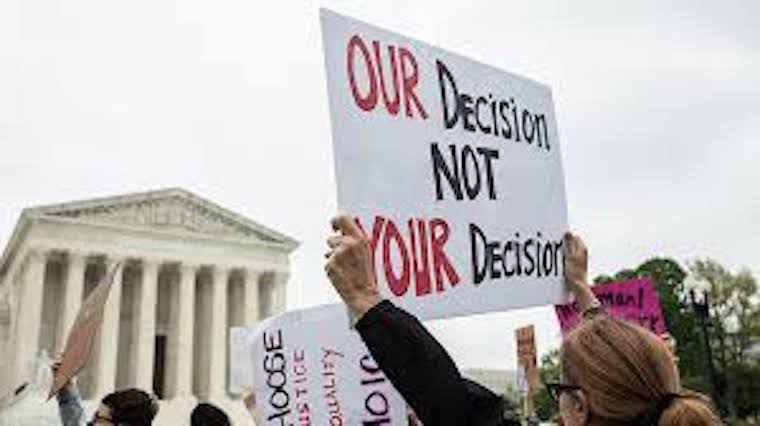As transnational, Indigenous, and intersectional feminist scholars, we are compelled to speak out about the implications of the leaked draft of the Supreme Court's decision to overturn the landmark 1973 case of Roe v. Wade.
If it does happen, this decision will reverse the last 50 years of precedent and give the state the ultimate authority to govern, police, and oversee our most personal decisions about our bodies. It will disproportionately impact economically challenged communities of color and marginalized groups who are already navigating through the existing health care obstacles. We unequivocally affirm that a person's right to govern their body is a fundamental human right, which must be enshrined into the law, now more than ever. The reversal of Roe will impact all people's ability to have reproductive choices.
According to the Guttmacher Institute, as of today, 23 states have laws that could be used to restrict the legal status of abortion immediately:
-
Nine states retain their unenforced, pre-Roe abortion bans.
-
Thirteen states have post-Roe laws to ban all or nearly all abortions that would be triggered if Roe were overturned.
-
Nine states have unconstitutional post-Roe restrictions currently blocked by courts but could be brought back into effect with a court order in Roe's absence.
-
Seven states have laws that express the intent to restrict the right to legal abortion to the maximum extent permitted by the U.S. Supreme Court in the absence of Roe.
-
Four states have passed a constitutional amendment explicitly declaring that their state constitution does not secure or protect the right to abortion or allow the use of public funds for abortion.
We are at a moment where we must fight. We must push back, and we must speak out. Elections have consequences. Protests and petitions hold weight. Our collective voices and stories are needed at this time. There is power and protection when we come together to stand against what is happening in the courts and what may happen to our colleagues in right- wing states across this country.
We urge all of our members to stand with, defend, and support our most vulnerable colleagues. We encourage everyone to seek out activist organizations and members planning protests, teach-ins, town halls, and vigils. Take this moment to reach out to your Congressperson, participate invoter registration drives, use your social media platform, and go from house to house, if need be, and alert everyone to what is happening so that we can show up at the polls in November and elect people into office who will have our best interests at the top of their to-do list. We also urge that we all hold space for some who are unable to move forward and actively participate at this time. Self-care is an act of revolution and resistance, and you are in community when you take the time to take care of yourself first.
Finally, NWSA has more than 2,000 active members, a 7,000-strong membership base, and 350 institutional members across the United States and worldwide, producing scholarship, writing op-eds, teaching students, and creating art, poetry, and music across many different disciplines, working independently, inside of the academy, and within the industry. Together, we have faced similar moments of difficulty and challenge, so we know how to fight and use our collective voice as a weapon and our time, talents, and treasures as a tool. This is the moment where we must do what we do so well—be active, be present, be loud, be vocal, be visible, and be brave.
National Women’s Studies Association Officers and Board Members
Karsonya Wise Whitehead, Ph.D., NWSA President
Ariella Rotramel, Ph.D., NWSA Vice-President
Angela Clark-Taylor, Ph.D., NWSA Treasurer
Heidi Lewis, Ph.D., NWSA Secretary
******
Lisa D. Covington, M.A., Ph.D. Candidate
Qiana Cutts, Ph.D., Mississippi State University
Prathim-Maya Dora-Laskey, Ph.D., Alma College
Yi-Chun Tricia Lin 林怡君, Ph.D., Southern Connecticut State University
Stephanie Troutman Robbins Ph.D., University of Arizona Gina Velasco, Ph.D., Gettysburg College
Erica L. Williams, Ph.D., Spelman College

